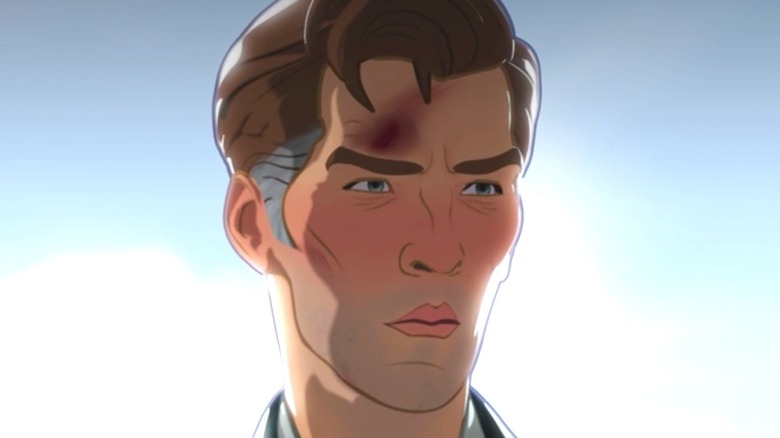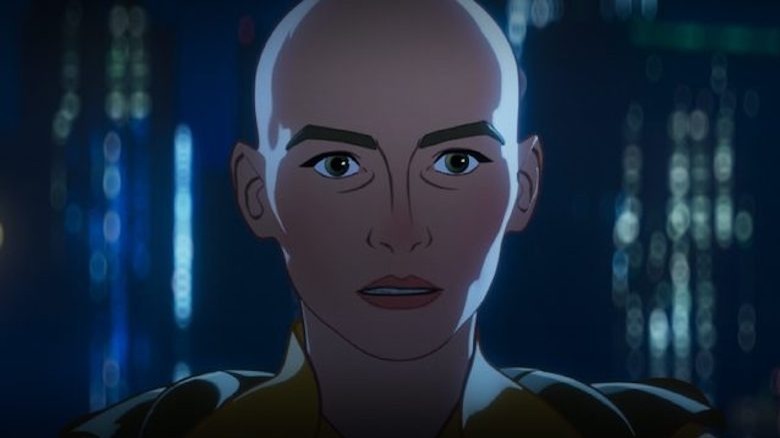Why What If...? Episode 4 Is More Important To The MCU Than You Think
Contains spoilers for "What If...?" Season 1, Episode 4: "What If... Doctor Strange Lost His Heart Instead of His Hands?"
"What If...?" Episode 4 asks an extremely important question regarding Doctor Strange (Benedict Cumberbatch). It gives audiences an insight into what the Sorcerer Supreme would be like if he was more emotionally available to Christine Palmer (Rachel McAdams) in the 2016 film. The multiversal TV series suggests that instead of crippling his hands in the fateful car accident, Christine would've been driving with him and she'd die in the crash. It's a tragic episode which really explores more of who Stephen Strange is at his core.
Instead of looking across the world for a cure to fix his hands, he blindly searches for something to give his life purpose following Christine's death — which is what leads him to Kamar-Taj, the Ancient One (Tilda Swinton), and most importantly, the Time Stone. The Infinity Stone lets the user control all aspects of time, and because this version of Stephen is obsessed with the idea of saving Christine, he's seduced by the stone's power.
It's easy to see why. Because this version of the hero still has something of an ego, he's just emotionally compromised at the same time. However, the Time Stone gives way to one of the most heartbreaking scenes of the series so far — every attempt he makes to save Christine ends with her death, and he's forced to watch Christine die over and over again. The scene slightly riffs on the ending of the hero's solo film, where he repeatedly dies at the hands of Dormammu (Benedict Cumberbatch), but it's actually much more important to the Marvel Cinematic Universe than you might think.
An absolute point
It's not clear how many times Doctor Strange attempts to save Christine, but it's implied through a montage that he exhausts every single avenue — including leaving her behind, letting her drive the car instead, and driving different routes. They all end in Christine's death. The Ancient One tries to convince him after his final attempt that her death cannot be undone, because it is an "absolute point" in the Marvel timeline, something that cannot be manipulated.
Stephen's ego takes over — which is why he winds up becoming a warped version of himself. But the Ancient One's line about an "absolute point" has larger ramifications for the MCU. It confirms that there are things that cannot be altered and there are things that can. Fans already know that the Avengers slightly changed the course of history by stealing the Infinity Stones in the "Time Heist" sequence during "Avengers: Endgame," which suggests the heist is an absolute point in time. It has to happen.
This episode crosses over into "Loki" territory as the live-action series explores what happens when someone deviates from the timeline — so it's interesting that the Time Variance Authority didn't try and intervene with Doctor Strange's plan to save Christine in "What If...?"
It's worth remembering that Kang (Jonathan Majors) references the universe has "crossed the threshold" in the "Loki" finale, which also sounds like an absolute point. It seems likely that as we get further into Phase 4, absolute points will become more prevalent — especially in films like "Spider-Man: No Way Home" and "Doctor Strange in the Multiverse of Madness."

